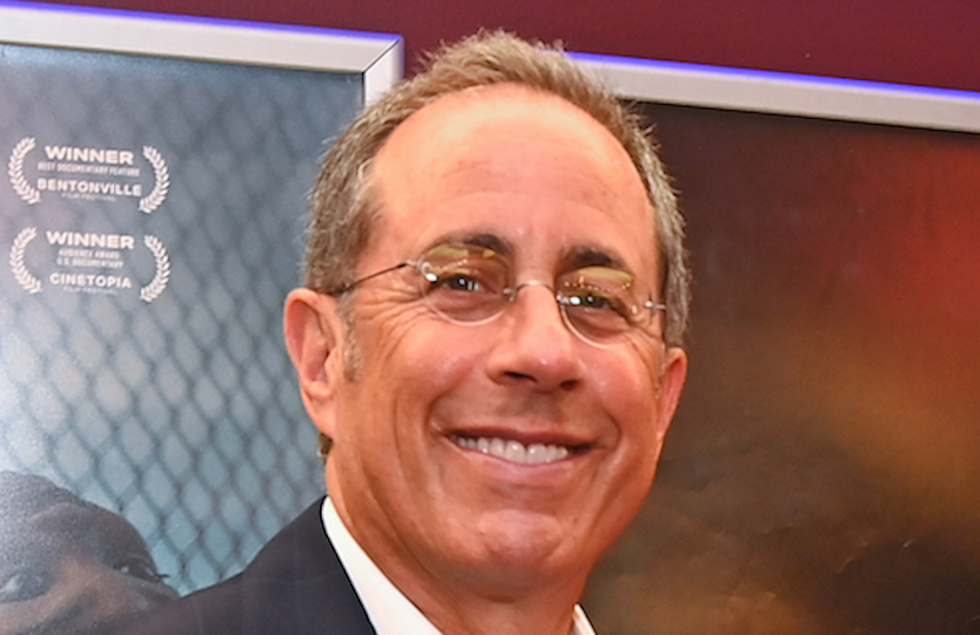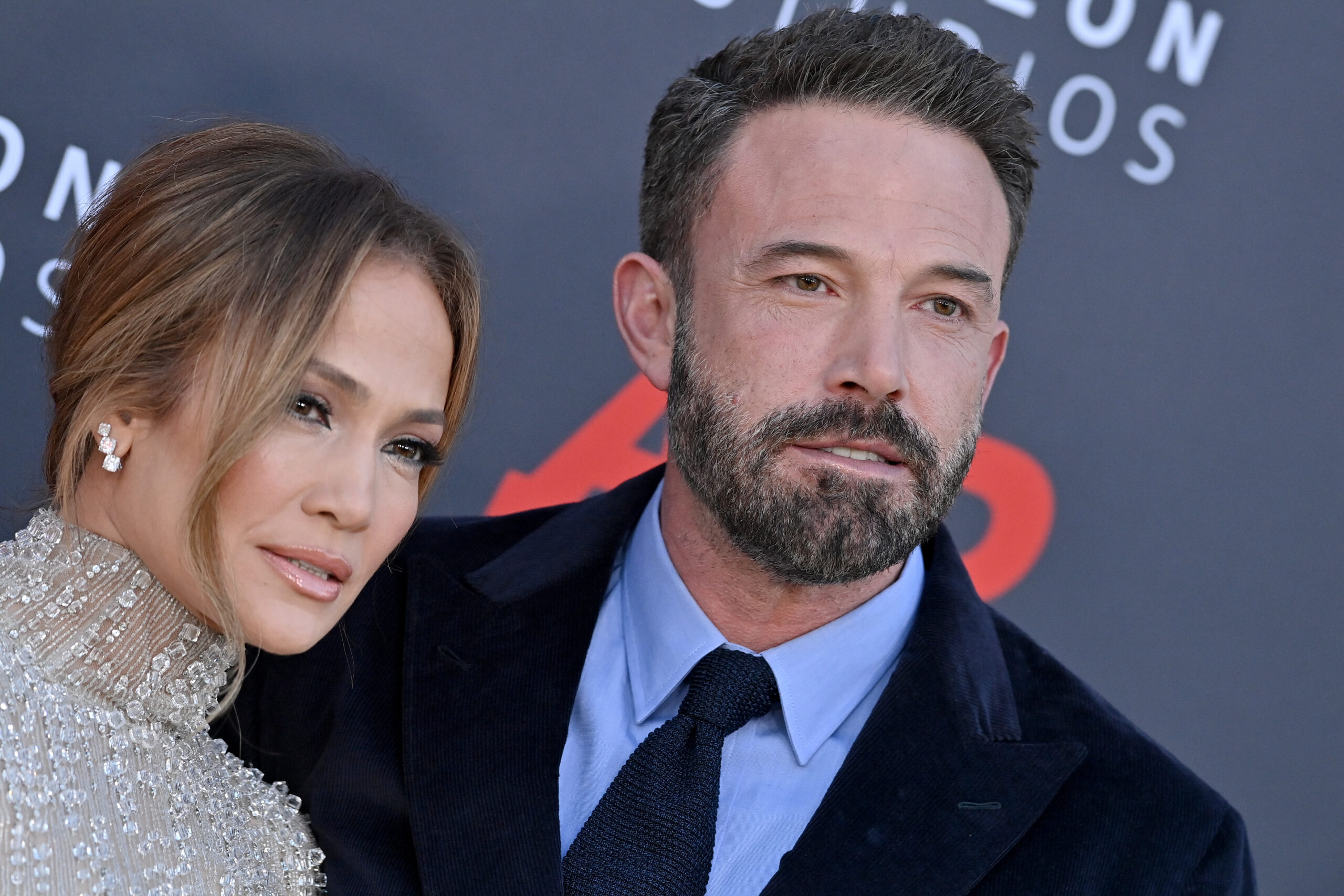Jerry Seinfeld walks back statement that the 'extreme left' is killing comedy, amends other claims in surprising interview
Jerry Seinfeld walked back a statement he made earlier this year that the "extreme left" is killing comedy — and the iconic funnyman also amended other words of his in a surprising interview that aired Tuesday. During Tom Papa’s "Breaking Bread" podcast, the host noted that Seinfeld recently "made a lot of news" about what comedians can and can't say, then asked Seinfeld what he believes people got right and wrong about his pronouncements. 'So I don’t think, as I said, the extreme left has done anything to inhibit the art of comedy. I'm taking that back now, officially.' "Here's the thing that I got wrong," Seinfeld began. "I did not know that people care what comedians say. That literally came as news to me. Who the hell cares about what a comedian thinks about anything?" He continued, "So there were two things that I have to say I regret saying and that I have to take back." "One of them I didn't say, but people think I did. ... I said I don't play colleges because the kids are too PC and you can't do comedy for them," Seinfeld noted. "Not true. First of all, I never said it, but if you think I said it, it’s not true. I play colleges all the time. I have no problem with kids, performing for them. In fact, I was just at the University of Indiana, Kentucky, we did [the University of Texas]. I mean, I do colleges all the time, so that perception that I don't play colleges — wrong." Actually Seinfeld said in a 2015 ESPN interview that “I don’t play colleges, but I hear a lot of people tell me, ‘Don’t go near colleges, they’re so PC.’" Perhaps Seinfeld's views on playing colleges changed over the last few years, but the "they're so PC" statement indeed appears to be in reference to what others said to him, not what he said himself. Further in the "Breaking Bread" podcast, Seinfeld noted his second "regret," saying it was in reference to "an interview with the New Yorker, and I said that the extreme left has suppressed the art of comedy. I did say that. That’s not true. It’s not true. ... If you're Lindsey Vonn, if you’re a champion skier, you can put the gates anywhere you want on the mountain; she's gonna make the gate. That's comedy. Whatever the culture is, we make the gate. You don’t make the gate, you’re out of the game. The game is, 'Where is the gate? How do I make the gate and get down the hill in the way I want to?'" Seinfeld continued: "So does culture change, and are there things I used to say that I can’t say that everybody's always moving [acceptability standards that apply to them]? Yeah, but that’s the biggest, easiest target. ... 'You can’t say certain words ... whatever they are ... about groups.' So what? The accuracy of your observation has to be 100 times finer than that to just be a comedian. … So I don’t think, as I said, the extreme left has done anything to inhibit the art of comedy. I'm taking that back now, officially. They have not. Do you like it? Maybe, maybe not. It's not my business to like or not like where the culture is at; it's my business to make the gate, to stay with my skiing analogy. You make the gate, or you're out." Later in the conversation, Seinfeld brought up another statement of his from earlier this year that he misses "dominant masculinity" in culture. "Which is probably not the greatest phrase," Seinfeld confessed to Papa. "What I was really saying is that I miss big personalities. That's what I miss." He referred to figures such as Muhammad Ali, Sean Connery, and Howard Cosell, then noted, "These were all the people I wanted to be like as a kid. ... I wanted to have that kind of authority and style. It was really a style thing; everyone conforms more to not offend. I miss George C. Scott. I miss these gigantic personalities ... just 'cause I thought it was a great flavor in my youth ... and that made a headline the next day." What led to Seinfeld's reversals? It's not clear what led Seinfeld to walk back his statements; he's certainly more than powerful and wealthy enough to eschew outside pressure to amend his views. But interestingly, Julia Louis-Dreyfus — Seinfeld's co-star on the sitcom that used his surname and ruled television for much of the 1990s — made headlines herself after appearing to take issue with Seinfeld's anti-PC stance. The New York Times in early June published an interview with Louis-Dreyfus, and the paper told her that "your former co-star Jerry Seinfeld recently made news for talking about political correctness in comedy. I’m wondering, as a famous comedian yourself, what you think about that." Dreyfus didn't mention Seinfeld by name, but she told the Times the following: If you look back on comedy and drama both, let’s say 30 years ago, through the lens of today, you might find bits and pieces that don’t age well. And I think to have an antenna about sensitivities is not a bad thing. It doesn’t mean that all comedy goes out the window as a result. When I hear people starting to complain about political corr


Jerry Seinfeld walked back a statement he made earlier this year that the "extreme left" is killing comedy — and the iconic funnyman also amended other words of his in a surprising interview that aired Tuesday.
During Tom Papa’s "Breaking Bread" podcast, the host noted that Seinfeld recently "made a lot of news" about what comedians can and can't say, then asked Seinfeld what he believes people got right and wrong about his pronouncements.
'So I don’t think, as I said, the extreme left has done anything to inhibit the art of comedy. I'm taking that back now, officially.'
"Here's the thing that I got wrong," Seinfeld began. "I did not know that people care what comedians say. That literally came as news to me. Who the hell cares about what a comedian thinks about anything?"
He continued, "So there were two things that I have to say I regret saying and that I have to take back."
"One of them I didn't say, but people think I did. ... I said I don't play colleges because the kids are too PC and you can't do comedy for them," Seinfeld noted. "Not true. First of all, I never said it, but if you think I said it, it’s not true. I play colleges all the time. I have no problem with kids, performing for them. In fact, I was just at the University of Indiana, Kentucky, we did [the University of Texas]. I mean, I do colleges all the time, so that perception that I don't play colleges — wrong."
Actually Seinfeld said in a 2015 ESPN interview that “I don’t play colleges, but I hear a lot of people tell me, ‘Don’t go near colleges, they’re so PC.’" Perhaps Seinfeld's views on playing colleges changed over the last few years, but the "they're so PC" statement indeed appears to be in reference to what others said to him, not what he said himself.
Further in the "Breaking Bread" podcast, Seinfeld noted his second "regret," saying it was in reference to "an interview with the New Yorker, and I said that the extreme left has suppressed the art of comedy. I did say that. That’s not true. It’s not true. ... If you're Lindsey Vonn, if you’re a champion skier, you can put the gates anywhere you want on the mountain; she's gonna make the gate. That's comedy. Whatever the culture is, we make the gate. You don’t make the gate, you’re out of the game. The game is, 'Where is the gate? How do I make the gate and get down the hill in the way I want to?'"
Seinfeld continued: "So does culture change, and are there things I used to say that I can’t say that everybody's always moving [acceptability standards that apply to them]? Yeah, but that’s the biggest, easiest target. ... 'You can’t say certain words ... whatever they are ... about groups.' So what? The accuracy of your observation has to be 100 times finer than that to just be a comedian. … So I don’t think, as I said, the extreme left has done anything to inhibit the art of comedy. I'm taking that back now, officially. They have not. Do you like it? Maybe, maybe not. It's not my business to like or not like where the culture is at; it's my business to make the gate, to stay with my skiing analogy. You make the gate, or you're out."
Later in the conversation, Seinfeld brought up another statement of his from earlier this year that he misses "dominant masculinity" in culture.
"Which is probably not the greatest phrase," Seinfeld confessed to Papa. "What I was really saying is that I miss big personalities. That's what I miss." He referred to figures such as Muhammad Ali, Sean Connery, and Howard Cosell, then noted, "These were all the people I wanted to be like as a kid. ... I wanted to have that kind of authority and style. It was really a style thing; everyone conforms more to not offend. I miss George C. Scott. I miss these gigantic personalities ... just 'cause I thought it was a great flavor in my youth ... and that made a headline the next day."
What led to Seinfeld's reversals?
It's not clear what led Seinfeld to walk back his statements; he's certainly more than powerful and wealthy enough to eschew outside pressure to amend his views.
But interestingly, Julia Louis-Dreyfus — Seinfeld's co-star on the sitcom that used his surname and ruled television for much of the 1990s — made headlines herself after appearing to take issue with Seinfeld's anti-PC stance.
The New York Times in early June published an interview with Louis-Dreyfus, and the paper told her that "your former co-star Jerry Seinfeld recently made news for talking about political correctness in comedy. I’m wondering, as a famous comedian yourself, what you think about that."
Dreyfus didn't mention Seinfeld by name, but she told the Times the following:
If you look back on comedy and drama both, let’s say 30 years ago, through the lens of today, you might find bits and pieces that don’t age well. And I think to have an antenna about sensitivities is not a bad thing. It doesn’t mean that all comedy goes out the window as a result. When I hear people starting to complain about political correctness — and I understand why people might push back on it — but to me that’s a red flag, because it sometimes means something else. I believe being aware of certain sensitivities is not a bad thing. I don’t know how else to say it.
She didn't clarify what that "something else" is, nor did the Times follow up with a question regarding what "something else" might be.
Anything else?
Seinfeld has been quite active on the sociopolitical front over the last year.
During a May interview with Bari Weiss during which Seinfeld made the "dominant masculinity" statement, he also addressed anti-Israel sentiment that fueled college campus protests — and how protesters have even targeted him. Earlier in May, some Duke University graduates walked out of Seinfeld's commencement address.
“It’s so dumb. It's so dumb," he said. "In fact, when we get protesters occasionally, I love to say to the audience, ‘You know, I love that these young people, they’re trying to get engaged with politics ... we have to just correct their aim a little bit."
When Weiss brought up seeing video of protesters calling Seinfeld "Nazi scum" and being shocked when he smiled back and waved, Seinfeld told her, "It's so silly. They want to express this sincere, intense rage, but again, a little off target ... so that’s, to me, comedic."
Also, at one point, when Weiss asked Seinfeld about his trip to Israel after the deadly Oct. 7 Hamas attack, the comedian in a rare moment had to fight really hard to hold back tears after he called his visit the "most powerful experience of my life."
Seinfeld also took on anti-Israel hecklers at a number of his shows earlier this year.
You can check out Seinfeld's relevant words in the "Breaking Bread" podcast below:
Like Blaze News? Bypass the censors, sign up for our newsletters, and get stories like this direct to your inbox. Sign up here!
Originally Published at Daily Wire, World Net Daily, or The Blaze
What's Your Reaction?

































































































